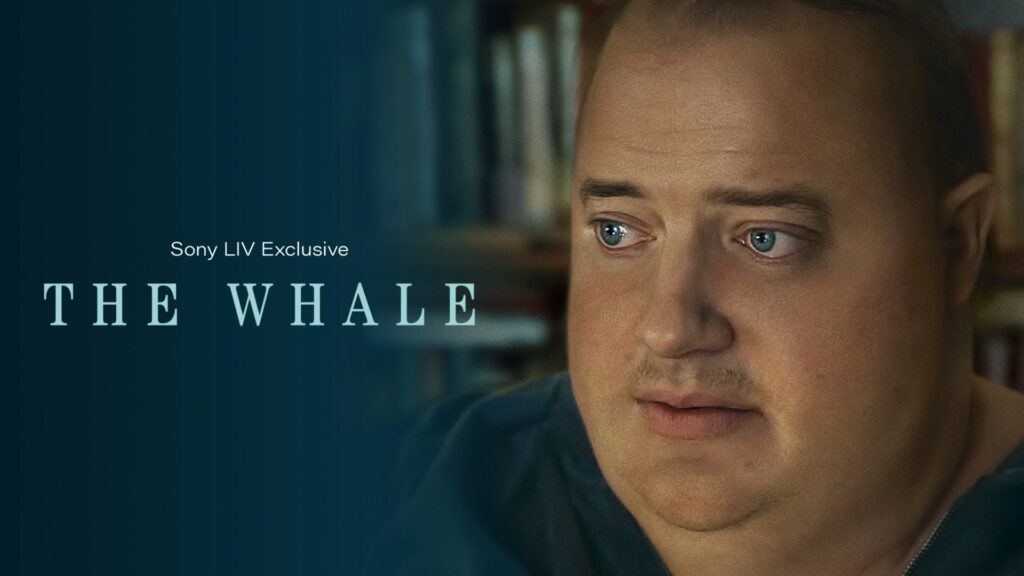The Whale–- Moby Dick Revisited

The Whale is an adaptation of Sam Hunter’s play, directed by Darren Aronofsky (“Requiem for a Dream”, “Black Swan”, and “mother!”). The opening scene zooms in on a middle-aged, morbidly obese professor, Charlie (the Academy-Award winning role for Brendan Fraser) sitting in front of a computer in his claustrophobic, dark apartment in a small town in Idaho. He teaches creative writing online to aspiring college students. His face is blocked out by the camera, revealing nothing of his physical condition.
Now terminally ill with congestive heart failure, Charlie desperately wants to reconnect with his little girl–now a teenager– he abandoned when she was eight. Ellie (the astonishing Sadie Sink from “Stranger Things”) is naturally unforgiving for the life she and her mother (Samantha Morton) had to suffer.
Charlie is isolated and avoids any human contact except with his extraordinary caregiving nurse and friend, Liz (Academy Award nominated Hong Chau). Charlie is deeply ashamed of his neglect as a parent which causes an inability to find the will to live. He has filled the emptiness in his life with food he doesn’t want to eat. Utterly heart-breaking and deeply moving, Charlie heroically determines that he cannot leave Ellie without her knowing how much he cared for her in the context of an impossible “double doom”: choosing between a love/soul mate or his wife and child.
He still cares about books, teaching, evoking honesty and truth no matter what the cost. Is that enough for the deeply hurt Ellie to care for an unconscionably neglectful father? For one so young and so angry and hurt, is forgiveness and an open heart even possible after so many unhealed wounds?
There are several key father-daughter scenes which are overwhelming and relentless, tormenting and pitiable. In a masterful character arc, Charlie becomes worthy of the viewer’s understanding and acceptance due to his unshakeable ability to see the good in Ellie. She is a mirror of himself.
Ellie fills the emptiness in her life by lashing out at others. Injuring others (ultimately oneself) as a defense for one’s own hurt is at the core of The Whale.
In the concluding scene, with a twist of magical realism, we see the intention of The Whale: “I need to know that she’s going to have a decent life, where she cares about people, and she’s going to be okay,” he says through tears. “I need to know that I have done one thing right with my life.”
The Whale is simply brilliant.
Availability: Pay-per-view
Note: The Whale has had some controversy and criticism from notable authors such as Roxane Gay (https://www.nytimes.com/2022/12/10/opinion/the-whale-film.html) who accuses the filmmakers of fat-shaming and calls The Whale a freak show. This NYT article is a spoiler-alert.
